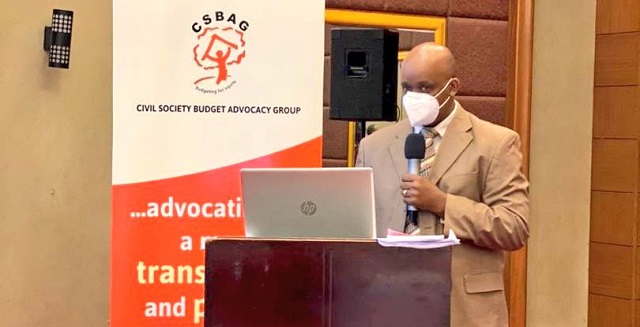
Kampala, Uganda | THE INDEPENDENT | Civil Society Organizations have cautioned that allowing the Uganda National Oil Company (UNOC) to retain petroleum revenue will mark the beginning of an oil curse in Uganda.
They have now asked the finance committee of Parliament to reject a proposal by the government to have UNOC spend oil revenue at the source without prior approval by parliament. The proposal is contained in the Public Finance Amendment Bill, 2021, which was recently tabled before parliament.
The bill also seeks to allow UNOC to retain a portion of the proceeds from the sale of petroleum accruing from the State Participating Interest in the Production Sharing Agreements. The proposal aims to ensure that UNOC’s financial obligations in the Tariff and Transportation Agreement (TTA) are met effectively.
UNOC is the government body mandated to handle the country’s commercial interests in the petroleum sub-sector and to ensure state participation in petroleum activities. It is also mandated to investigate and propose new upstream, midstream, and downstream ventures initially locally and eventually internationally.
The proposal states that since all the petroleum revenues are deposited into the Petroleum Fund, as required by the Public Finance Management Act, there is no mechanism provided for UNOC to meet its financial obligations under different contracts. The bill also seeks to revise the definition of petroleum revenue to exclude crude oil.
But during an interaction with the Finance commitee on Friday, Julius Mukunda, the Executive Director of the Civil Society Budget Advocacy Group (CSBAG), said that once passed into law, UNOC will have the leeway to collect the revenue at source and use it without approval or appropriation by Parliament. He adds that the move will erode the accountability and oversight methods that are already in place to ensure prudent financial management.
He says if UNOC wants to spend at source, it should borrow from the Uganda Revenue Authority (URA) model and only spend after its work plans and budgets have been approved by Parliament.
He also wants the maximum penalty of four years imprisonment or a fine of four million Shillings amended higher to guard against misuse of office and causing government losses.
A cross-section of MPs said that UNOC is no different from other government agencies and should seek financial approval before spending the money. Timothy Batuwa, the Jinja West MP says that UNOC or government need to explain what investment decisions are there that cannot be budgeted for earlier, or be supported through a supplementary allocation.
Otuke County MP Paul Omara, said that the proposal should be rejected and UNOC should always seek approval from parliament.
Sheema Municipality MP Dickson Kateshumba said that no entity should be allowed to take on the appropriation role of Parliament.
CSBAG proposed that parliament allows for recurrent expenditure to support and meet UNOC’s financial obligations arising from applicable petroleum and joint operating agreements in each financial year, based on the approved work plans and budgets for the financial year.
They also proposed that the government develop a Memorandum of Understanding between the Ministry of Energy, UNOC and Bank of Uganda to access funds on call, based on UNOC approved investment work plans and budgets.
In response, Jane Avur Pacuto, the committee vice chairperson said the committee would consider the recommendations and also interact with UNOC on the need to allow the entity to retain oil revenues for expenditure on company activities.
*****
URN
 The Independent Uganda: You get the Truth we Pay the Price
The Independent Uganda: You get the Truth we Pay the Price


